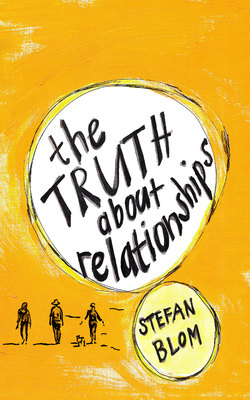Читать книгу The Truth about Relationships - Stefan Blom - Страница 12
На сайте Литреса книга снята с продажи.
Step 2: Have some compassion
ОглавлениеLook beyond the person who is upsetting and hurting you and ask yourself:
•Why is this person treating me like this?
•How is this person really feeling?
The person who is speaking to you in damaging ways is most likely in pain. There is no need to damage other people, so the person who is doing so is neither okay nor happy. This person may believe that he or she has the right to speak to people in such a damaging way. Whatever he or she is thinking or feeling, the truth is that people do not like themselves when they speak to each other in damaging ways. In simple terms, doing so does not make anyone feel good.
The truth is that if you damage others, you also damage yourself. What you do to others, you always also do to yourself. What you are getting is a smaller share of what this person is giving to himself or herself. People who judge or criticise you are often so much more critical of themselves. The person who neglects you is also neglecting himself or herself.
Having compassion for the person who is treating you in damaging ways means that you have to look beyond your own experience and have a deeper understanding of why that person behaves in this way. Look beyond your own distress and think, with kindness, about what this person might be going through. This does not mean accepting each other’s damaging ways – compassion simply allows you not to take all the damage that comes your way so personally, but rather to see it as the responsibility of another. A person who speaks to you in a damaging way is not your responsibility.
The truth is that no matter how you have behaved, others do not have the right to treat you badly. You do not have the licence to hurt or damage others just because you are in a bad mood, upset or unhappy. If you do damage to others, you need to take a closer look at yourself and ask yourself why you treat others in ways that also damage you. Nobody can do your work for you.
Being on the receiving end of another person’s damaging ways with some compassion may help you to see a difficult interaction in a new way. It may shift your internal focus away from, ‘What am I doing wrong?’ to, ‘Is this person okay? I wonder how he or she is really doing … ’
Here are some questions that could deepen your compassion for another person.
Questions to ask yourself
•Why is this person speaking to or treating me in this way (especially if I did nothing to provoke it)?
•What is this person really going through that makes him or her treat or speak to me like this?
•What is my responsibility (if any) in this damaging interaction, and what is not?
